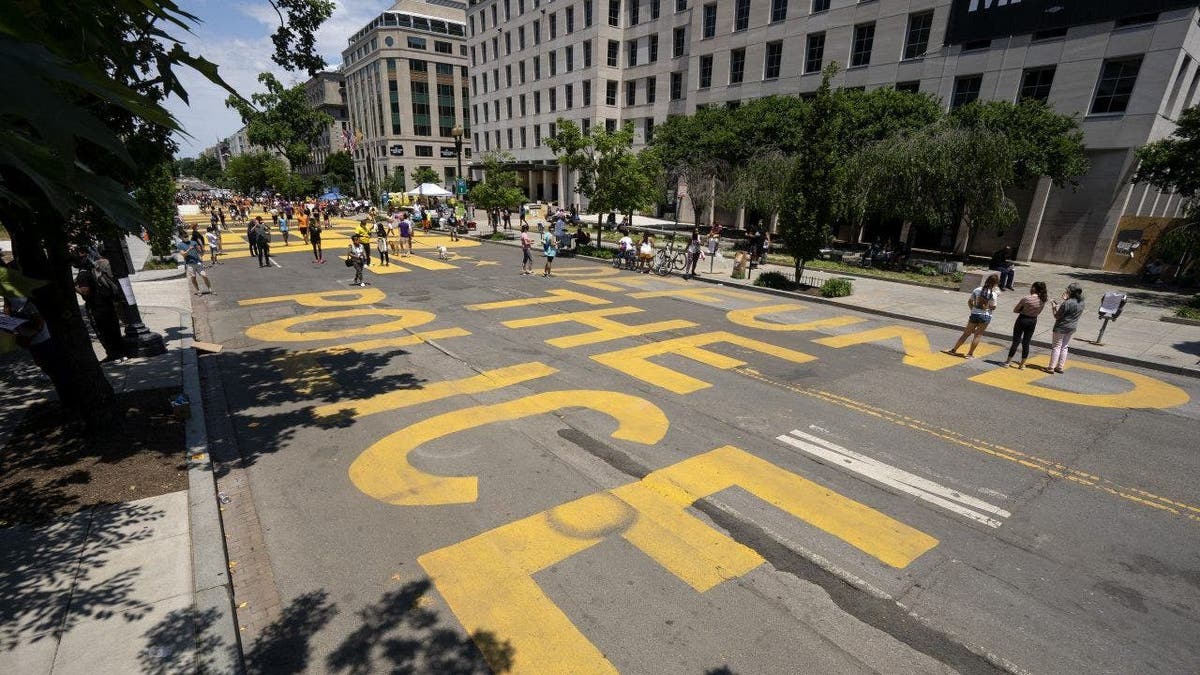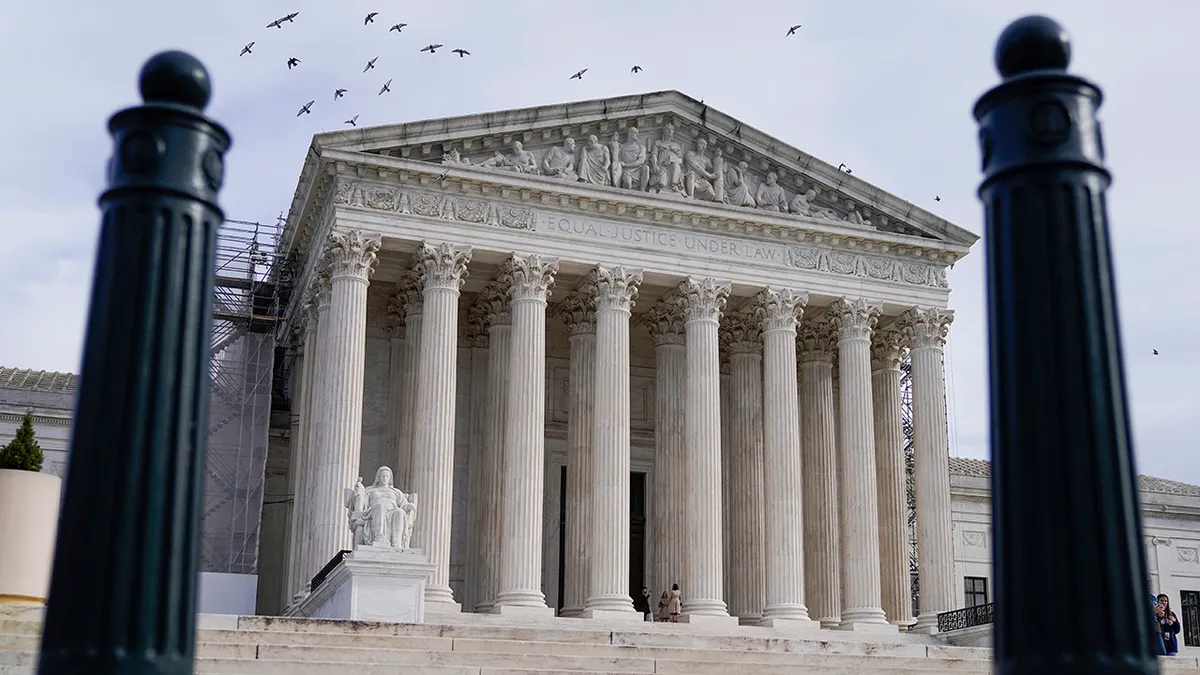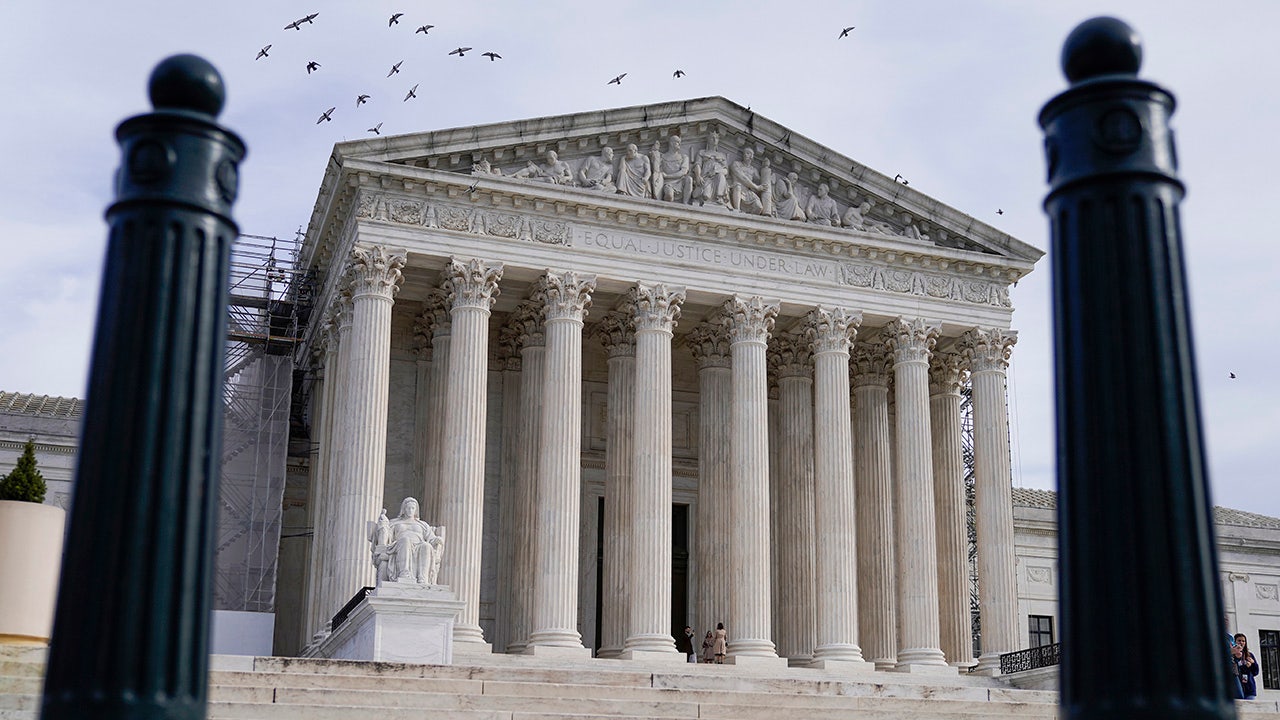The Supreme Court on Monday rejected an appeal from a Black Lives Matter organizer who was held liable by a lower court for a random protester’s attack on a police officer at a protest he organized.
In 2016, civil rights activist Deray Mckesson was sued by an unnamed Baton Rouge police officer — “John Doe” — for injuries he sustained during a protest.
Doe claimed that an unidentified third party threw a “rock-like” object during the protest and hit him, knocking his teeth out and leaving him with a brain injury. The officer sued Mckesson on the theory that he “should have known” that the protest “would become violent as other similar riots had become violent.”
“The pattern was set: out-of-state protesters representing BLM fly into a town, gather, block a highway, engage and entice police, loot, damage property, injure bystanders, injure police. By July 9, 2016, when McKesson organized the Baton Rouge protest/riot—he had no reason to expect a different outcome—police will be injured,” lawyers for the officer wrote in their brief.
DEMS VIOLATED FREEDOM OF SPEECH DURING TRANSGENDER BILL’S DEBATE, CONSERVATIVE GROUPS ALLEGE
The Supreme Court Monday rejected an appeal from a Black Lives Matter protest organizer held liable for a violent attack on a police officer. (Stanton Sharpe/SOPA Images/LightRocket via Getty Images)
The case has already gone several rounds in lower courts. Most recently, in June of last year, the Fifth Circuit decided that the case could proceed because Doe had successfully alleged that Mckesson had “directed his own tortious activity” of creating unreasonably dangerous conditions. The appeals court also said he had “incited” violence by “organiz[ing] and direct[ing] a protest… such that it was likely that a violent confrontation with the police would result.”
PRO-AMERICA COUNTRY ROCK SINGER SPEAKS OUT AFTER FAILED CANCELLATION, ENDORSES UNITY AROUND CONSTITUTION

“Defund the Police” is painted on the street in Black Lives Matter Plaza near the White House in Washington, D.C., U.S. (Stefani Reynolds/Bloomberg via Getty Images)
But lawyers for the American Civil Liberties Union (ACLU) representing Mckesson argued that the claims against him violate his First Amendment rights, and argued that the lower court’s decision is “directly at odds” with Supreme Court precedent and “will chill classic First-Amendment-protected activity nationwide.”
On Monday, the Supreme Court decided not to take up his case. Justice Sonia Sotomayor issued a separate opinion respecting the court’s denial, but noted that it “expresses no view about the merits of Mckesson’s claim.”

The U.S. Supreme Court is seen, Nov. 15, 2023, in Washington. (AP Photo/Mariam Zuhaib, File)
She also suggested that the high court’s recent decision in Counterman v. Colorado — which makes it more difficult to convict a person of making a violent threat — should influence how lower courts treat Mckesson’s case.
“Although the Fifth Circuit did not have the benefit of this Court’s recent decision in Counterman when it issued its opinion, the lower courts now do. I expect them to give full and fair consideration to arguments regarding Counterman’s impact in any future proceedings in this case,” Sotomayor said. Monday.
